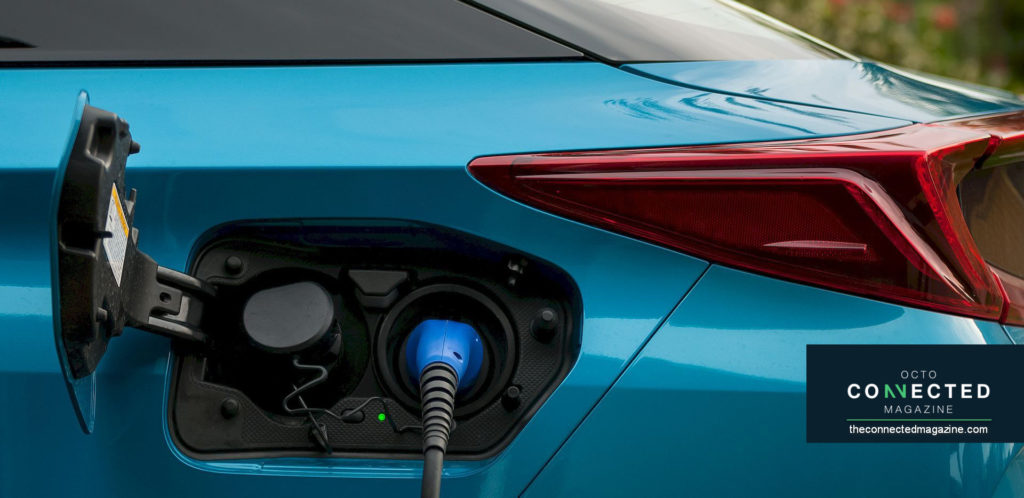
With more and more social and political pressure to switch to greener alternatives, many firms are adding hybrid electric vehicles to their fleets as the first step to lowering operating costs and curbing carbon emissions. Although the interest is high, most fleets are still wondering what the added benefits are from switching their traditional cars to hybrid electric vehicles. On of the key question is: will the government incentives (e.g. the Recovery Plan for EU) be able to bridge the total cost of ownership’s difference between a petrol car and a hybrid one? But there is much more to learn about the types of hybrid vehicles are, how they work, what their main benefits are and conventional wisdom that often turns out to be “fake news”.
What hybrid is best fitting your fleet – Hybrid vehicles are actually grouping 4 different technologies, requesting a very different degree of discipline from the driver. Full Hybrid simply requires an appropriate driving style, while a Plug-in cannot achieve the desired results without an appropriate use, regularly recharging to take full advantage of the electric motor, under penalty of an exponential increase in costs and emissions if recharges aren’t carried out. A proper charging infrastructure is thus necessary, both in the company site and at home. It also implies choosing the payment system and selecting a convenient contract for your drivers. Extended-range hybrids are similar to PHEVs but they are always powered by their electric motor: the petrol or diesel engine simply keeps the battery charged on longer journeys. The engine doesn’t power the wheels, it provides power to maintain the battery power, so it acts like a generator. In a mild hybrid a small electric motor assists the petrol or diesel engine by reducing the amount of work that the engine must do. However, a mild hybrid cannot drive the vehicle itself. By cutting the engine whenever it’s not needed, and by reducing the need for the engine to power all the accessories, a mild hybrid system can improve fuel economy by up to about 10%.
Mileage is still crucial – Hybrid electric cars are increasingly used for commuting and short-range trips because of their fuel efficiency (more kilometers per liter). A company should therefore identify an appropriate annual mileage range and a set of consistent assumptions (mainly about real consumption): through and RFQ process rental companies can help to define the level of investment required to have a more sustainable fleet, including the cost for charging stations. You will be able to know up to what level of mileage you can push according to the available budget. On-board telematics is the only safe and reliable tool to track real mileage, consumption and emissions, according to the driving style: calculations can only be based on consumption and emissions declared by OEMs and detected according to the new WLTP homologation. Nowadays the current “smart working” practices have contributed to reduce the average mileage.
Fast obsolescence of engines – The strong engines’ renewal programs have pushed fleet managers to overcome their initial reluctances to hybrid vehicles (especially the cost), carrying the burdens of the progress on the manufacturers’ shoulders. There is a structural reason to focus decisively on cleaner engines: future demand for new cars in developing countries is not sustainable with traditional engines without serious consequences for our planet. And the UE intends to decisively accelerate this evolution by placing its huge fines for those who do not comply.
What to evaluate when deciding to invest in hybrid vehicles – There are several factors that go into the decision to invest in hybrid electric vehicles. When evaluating your hybrid car options, take the following criteria into consideration: vehicle price and total cost of ownership (TCO); charging station infrastructure; battery cost and life (for PHEV); driving range.
How to finance the initiative – The Total Cost of Ownership of hybrid vehicles turns often out to be higher than a traditional one: operational cost is lower, but vehicle price is far higher, a proper trade-off is then to be identified. The most important initiative to finance your green policy is undoubtedly to optimize the management processes: reviewed car list, effective car policy, concentration of OEMs, methodology for managing RFQs and model quotations, rationalization of mileage and use are practical actions that companies have rarely fully exploited, due to lack of time and resources or to insufficient knowledge.
Your company driver is a strong ally – Most companies across the green transformation assess and check the level of knowledge and acceptance through an internal survey. Driver’s responses have been often surprising: acceptance and desire to drive a hybrid car are growing faster and faster. Just two years ago poll results were very different. Involving users in the change process is a key step for a successful transition.
An unavoidable choice – Hybrid cars’ welcoming in a corporate fleet is linked to a few factors, ranging from the will and determination of the leadership team, the careful analysis of savings opportunities (to recover part of the cost of transition), the segmentation of drivers by needs and distances and the full involvement of all impacted company drivers. It’s not an option anymore: all political, economic and social trends indicate sustainability as a non-negotiable success factor for companies. Whether you are already on a mission to reduce emissions through an ongoing corporate social responsibility (CSR) scheme or are looking for ways to reduce your business’ impact on the planet, a hybrid could be a good choice.
Author: Mauro Serena, Partner, GR ADVISORY